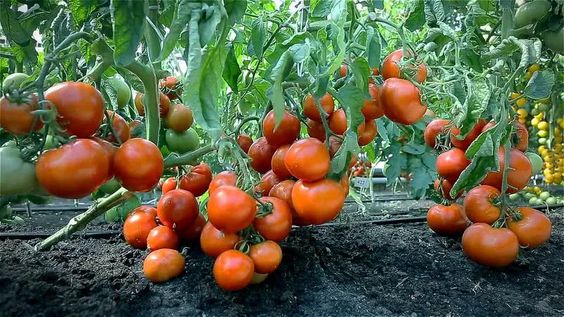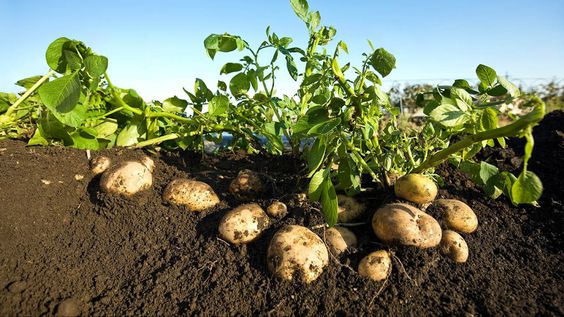Unlocking Potential: How Plant Genetics Agriculture Revolutionizes Smart Agriculture
Plant Genetics Agriculture sector stands at a crossroads. The ever-growing global population demands a significant increase in food production, while climate change threatens existing yields. To meet this challenge, agriculture is undergoing a digital revolution, embracing innovative technologies under the umbrella of Smart Agriculture. Within this transformation, plant genetics plays a pivotal role, offering a powerful tool to unlock the potential of crops and ensure food security for future generations.
Plant Genetics Agriculture, also known as Precision Agriculture, leverages data-driven insights and technology to optimize agricultural practices. Farmers utilize sensors, robotics, and advanced analytics to monitor soil conditions, water usage, and crop health in real-time. This data empowers them to make informed decisions about resource allocation, pest management, and fertilizer application, ultimately maximizing yields and minimizing environmental impact.
Plant Genetics Agriculture forms the foundation of Smart Agriculture. By understanding the genetic makeup of crops, scientists can identify desirable traits such as disease resistance, drought tolerance, and improved nutritional content. This knowledge empowers them to develop new crop varieties specifically tailored to address the challenges faced by modern agriculture.
Contents
- 1 Revolutionizing Crop Breeding: Marker-Assisted Selection and Gene Editing
- 2 Optimizing Resource Management: Tailoring Crops to Specific Environments
- 3 Enhancing Nutritional Value: Biofortification for a Healthier Population
- 4 The Future of Plant Genetics Agriculture
- 5 Conclusion: Plant Genetics Agriculture
Revolutionizing Crop Breeding: Marker-Assisted Selection and Gene Editing
Traditionally, crop breeding relied on observing physical characteristics over multiple generations to select desirable traits. This process was time-consuming and imprecise. Plant genetics has revolutionized breeding techniques through advancements like Marker-Assisted Selection (MAS) and gene editing.
MAS utilizes genetic markers linked to desirable traits. By analyzing these markers, breeders can identify plants with the desired genetic makeup early in the breeding cycle, significantly accelerating the development of new varieties.
Gene editing techniques like CRISPR-Cas9 offer an even more precise approach. Scientists can directly modify specific genes in a plant’s genome, introducing or removing desired traits with unprecedented accuracy. This opens doors to developing crops resistant to specific diseases, pests, and herbicides, or crops with enhanced nutritional value or improved tolerance to harsh environmental conditions.
Optimizing Resource Management: Tailoring Crops to Specific Environments
Plant Genetics Agriculture, powered by plant genetics, allows for the development of crops specifically adapted to local environments. Soil conditions, water availability, and climate all play a crucial role in crop performance. By understanding the genetic makeup of crops and their response to environmental factors, scientists can develop varieties that thrive in specific regions.
For example, drought-tolerant crops can be developed for arid regions, minimizing water usage and ensuring food security even in areas with limited water resources. Similarly, crops resistant to specific diseases prevalent in a particular region can be introduced, reducing reliance on chemical pesticides and promoting sustainable agricultural practices.
Enhancing Nutritional Value: Biofortification for a Healthier Population
Malnutrition remains a significant global challenge. Plant genetics offers a powerful tool to address this issue through biofortification. This technique involves manipulating the genes of crops to increase their nutritional content. Scientists can develop crops with higher levels of essential vitamins, minerals, and micronutrients, directly addressing malnutrition at its source.
Biofortification can be particularly impactful in developing countries where dietary deficiencies are widespread. By introducing biofortified crops like vitamin A-rich rice or iron-fortified maize, communities can gain access to essential nutrients, leading to improved health outcomes, particularly for children and pregnant women.
The Future of Plant Genetics Agriculture
Plant Genetics Agriculture is rapidly evolving, offering exciting possibilities for the future of Smart Agriculture. As our understanding of plant genomes deepens, scientists will develop even more precise and sophisticated tools for crop improvement. Here are some promising areas of exploration:
- Genetically Modified Organisms (GMOs): While GMOs remain a subject of debate, advancements in gene editing techniques could pave the way for the development of safer and more precise GMOs with the potential to address specific challenges like herbicide resistance or improved shelf life.
- Genetically Engineered Nitrogen Fixation: Currently, nitrogen fertilizers are essential for crop growth but can contribute to environmental pollution. Research into engineering crops with the ability to fix their own nitrogen from the atmosphere holds immense potential for sustainable agriculture.
- Climate-Resilient Crops: Climate change poses a significant threat to agricultural productivity. Plant genetics research is focused on developing crops resilient to extreme weather events like drought, floods, and heatwaves, ensuring food security in a changing climate.
Conclusion: Plant Genetics Agriculture
Plant Genetics Agriculture is not a silver bullet, and ethical considerations surrounding its application must be carefully addressed. However, its potential to revolutionize Smart Agriculture is undeniable. By harnessing the power of plant genetics, we can unlock the potential of crops, ensuring sustainable food production, improved nutrition, and a food-secure future for generations to come. As we move forward, collaborative efforts between scientists, farmers, policymakers, and consumers will be crucial to ensure the responsible and ethical development and implementation of these powerful technologies.




